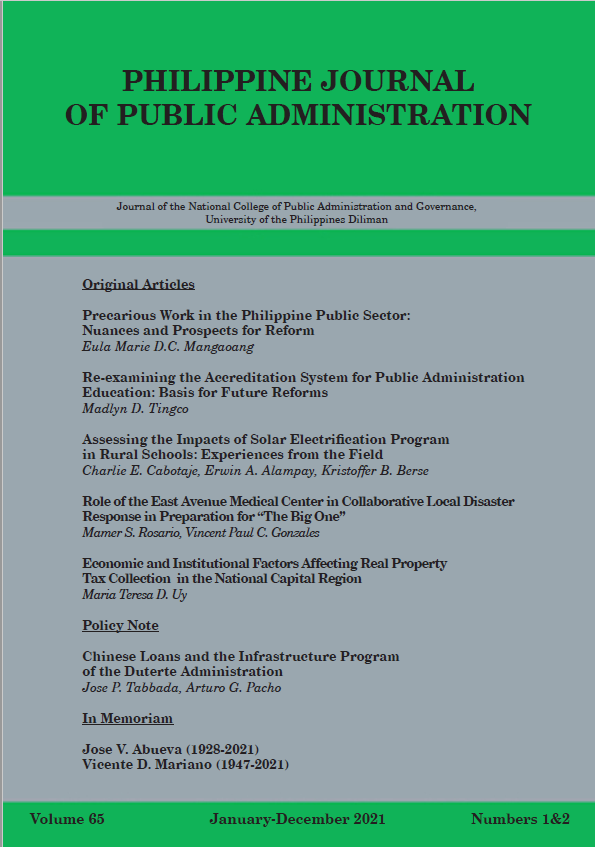Chinese loans and the infrastructure program of the Duterte Administration
Abstract
How can foreign loans be sustainable under an administration that favors foreign borrowing, particularly from the People’s Republic of China? The basic premise is that a debt is sustainable if the benefits of the project to which the loan proceeds are applied exceed the cost of borrowing. As an alternative, this article offers a framework on sustainability with the essential element of good governance, among other components. It focuses in detail on four infrastructure projects which are funded through loans from various foreign sources. To determine whether these loans are sustainable, the loan agreements between the Philippines and foreign funders were examined in terms of whether the provisions in the agreement were onerous or one-sided in favor of the lender, and/or disadvantageous to the borrower. The terms and conditions of the Chinese loans were also compared with those of other foreign sources in order to determine which sources offer better terms for the Philippines and ensure that no one source is unduly favored. By looking also at the experiences and lessons from abroad, policy recommendations are drawn to enhance debt sustainability in the Philippines.



